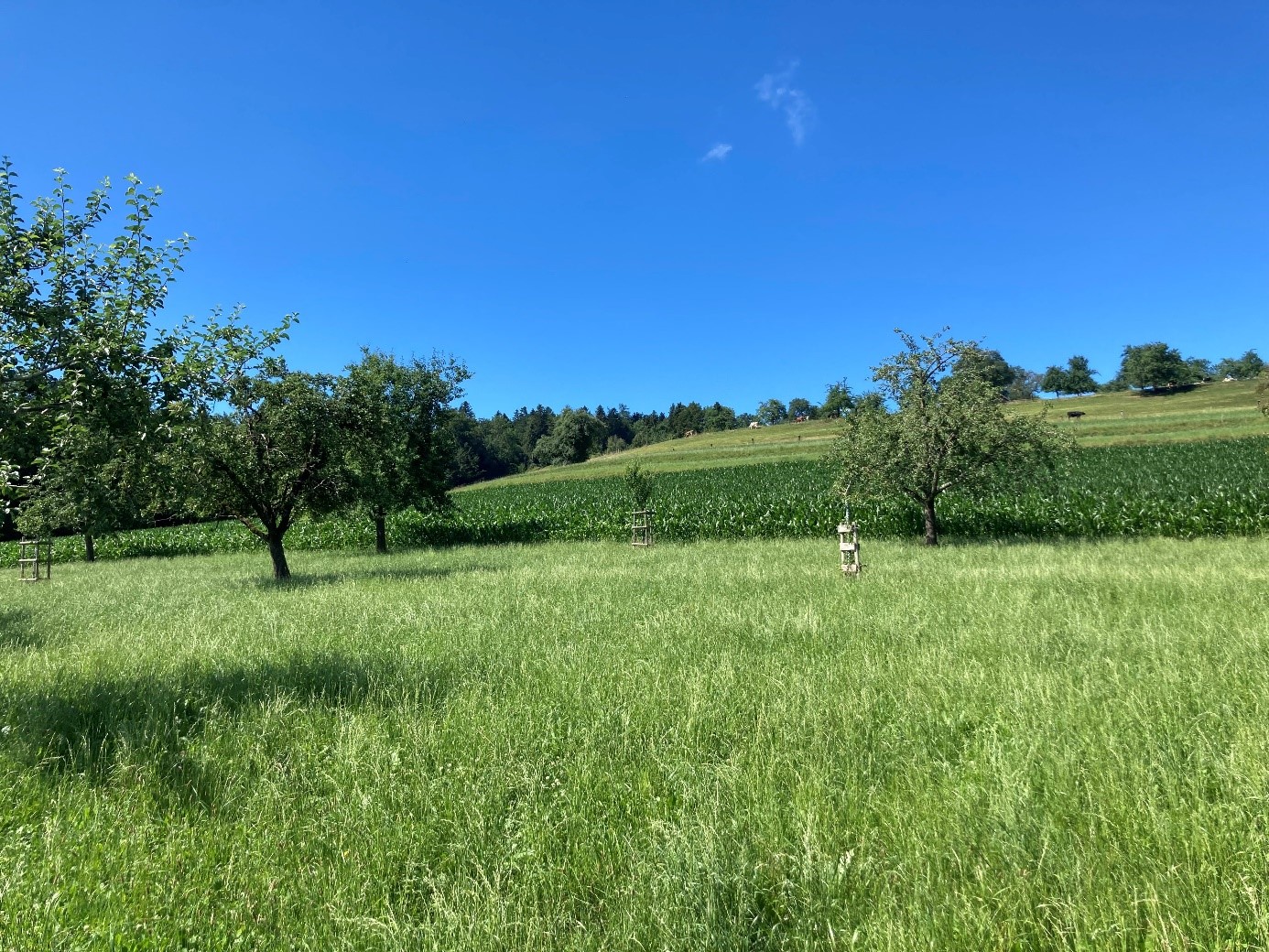Economics and policy of landscape scale management for reconciling biodiversity, ecosystem services and food production

Switzerland has committed itself to the 30x30 target which calls for protecting 30 percent of the world’s terrestrial habitats by 2030. At the same time, biodiversity is declining, and Switzerland has the lowest shares of protected areas in Europe. Aligning the biodiversity and ecosystem services conservation agendas with sustaining agricultural production is an important political priority. Landscape scale management approaches (i.e., a coordinated and collective provision of biodiversity and ecosystem services across farms) can alleviate trade-offs between biodiversity conservation and agricultural production. However, little is known about the costs and benefits of a landscape level approaches and the subsequent consequences for policy design and implementation.
In this project a new approach is developed and applied to a Swiss mountain case study that allows to assess the economic and ecological outcomes of landscape scale management. The project aspires to make four contributions.
1. The project will further our understanding of landscape scale management by empirically analyse the effects of a collective agri-environmental scheme on biodiversity and ecosystem services in Switzerland (landscape quality payments). This will provide new insights about the role of networks and their interaction with farm structural characteristics on the outcome of collective agri-environmental schemes.
2. The role of behavioural factors is key to increase the acceptance of collective agri-environmental schemes. Based on a survey in the case study region, this project analyses the interplay of economic and behavioural factors on the willingness to participate in a collective agri-environmental scheme that aims to support biodiversity conservation on a landscape level.
3. A new simulation tool (based on the existing agent-based modelling framework FARMIND) will be developed that allows to quantify the economic and ecological consequences of agri-environmental schemes with and without a landscape level approach. This allows to quantify the cost-efficiency of landscape scale approaches in biodiversity conservation in an ex-ante policy assessment.
4. An interdisciplinary evaluation of land-use scenarios with ecological tools provides new insights in the cost-effectiveness of landscape scale management approaches that aim to reconcile biodiversity conservation with agricultural production.
The project will identify barriers and enabling factors that make landscape scale management approaches effective, efficient, andacceptable by farmers and the public.
Background
Switzerland has committed itself to the 30x30 target which calls for protecting 30 percent of the world’s terrestrial habitats by 2030. (…) However, little is known about the costs and benefits of a landscape level approaches and the subsequent consequences for policy design and implementation.
Objectives
In this project a new approach is developed and applied to a Swiss mountain case study that allows to assess the economic and ecological outcomes of landscape scale management. The project aspires to make four contributions.
Project partners
Agroscope, Research Group Biodiversity & Landscape (admin.ch); International partners: University of Natural Resources and Life Sciences, Vienna, Austria (Project coordinator); University of Galway, Ireland; Ruralis Institute for rural and regional research, Oslo, Norway; University of Vienna, Austria; Leibniz-Zentrum für Agrarlandschaftsforschung (ZALF) e. V., Müncheberg, Germany; Estonian University of Life Sciences, Tartu, Estonia; Norwegian Institute for Nature Research, Oslo, Norway
Funding
GreeNet is funded under the Biodiversa+ 2021 – 2022 BiodivProtect call. Swiss Case Study funded by the Swiss National Science Foundation.
Duration
2023-2026
Website Consortium & Contact
Grassland conservation across European landscapes protecting biodiversity and ecosystem services with ecological networks: external page GreeNet (boku.ac.at)
Contact: